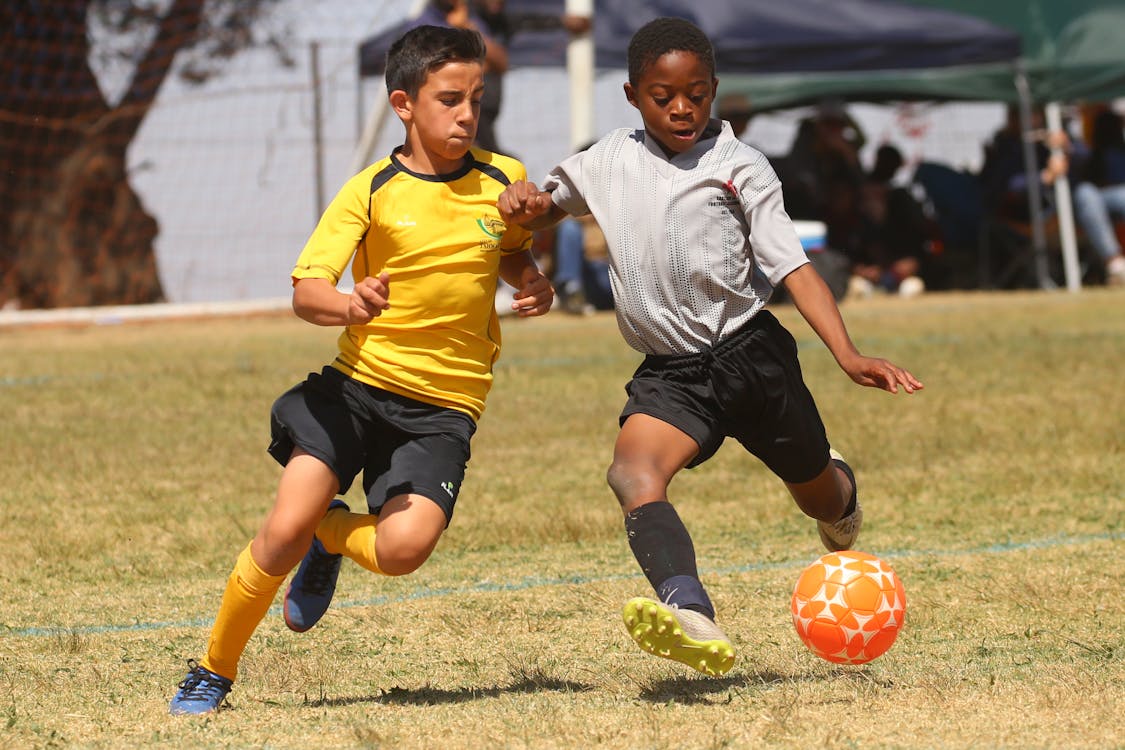Comprehensive Football Development Programs for All Ages
Comprehensive Football Development Programs for All Ages
Football (soccer) is more than just a game; it’s a global phenomenon that fosters teamwork, discipline, and physical fitness. Whether you’re a young child kicking a ball for the first time or an adult seeking to improve your skills, comprehensive football development programs can cater to all ages and skill levels. This article explores the key components of these programs, their benefits, and how they can be tailored to meet the needs of players at different stages of their football journey.

Understanding Football Development Programs
Football development programs are structured training sessions designed to enhance a player’s skills, fitness, and understanding of the game. These programs can range from grassroots initiatives aimed at young children to advanced training sessions for elite players. The primary objective is to create a positive learning environment where players can develop their technical abilities, tactical understanding, physical fitness, and psychological resilience.
Key Components of Comprehensive Program
Age-Appropriate Training: Development programs should be tailored to the specific needs and capabilities of players at various ages. Young children require fun, engaging activities that introduce basic skills, while older players can focus on advanced techniques, tactical awareness, and game strategy.
Technical Skills Development: Mastering technical skills is essential for football players. This includes dribbling, passing, shooting, ball control, and defensive maneuvers. Training sessions should emphasize repetition and practice to build muscle memory and confidence on the ball
Tactical Understanding: Players must learn how to read the game, anticipate opponents’ moves, and make strategic decisions. Development programs should incorporate game scenarios, small-sided games, and match simulations to help players understand positioning, spacing, and teamwork.
Physical Conditioning: Football requires a high level of physical fitness, including endurance, speed, strength, and agility. Conditioning programs should include aerobic training, strength exercises, and agility drills to improve overall fitness and prevent injuries.
Mental Resilience: Football is as much a mental game as it is a physical one. Development programs should include psychological training, focusing on building confidence, concentration, and a positive mindset. Techniques such as visualization and goal-setting can enhance mental toughness.
Coaching Education: Qualified coaches play a critical role in the success of development programs. Continuous education and certification for coaches ensure they stay updated on the latest training methods, child development principles, and injury prevention strategies.
Age-Specific Development Approaches
1. Grassroots Programs (Ages 4-10)
Grassroots programs introduce children to football in a fun and supportive environment. The focus is on:
- Skill Acquisition: Basic skills such as dribbling, passing, and shooting are taught through games and playful activities.
- Social Interaction: Children learn the importance of teamwork, communication, and sportsmanship.
- Physical Literacy: Programs emphasize developing overall motor skills, including running, jumping, and coordination.
2. Youth Development Programs (Ages 11-15)
As players grow, training becomes more structured and focused on skill refinement. Key aspects include:
- Advanced Skills Training: Players work on mastering techniques and learning positional play.
- Tactical Awareness: Introduction to basic formations and game strategies is crucial at this stage.
- Physical Conditioning: Conditioning becomes more rigorous, focusing on building strength and endurance relevant to the demands of competitive football.
3. Elite Development Programs (Ages 16 and Up)
For players aspiring to play at higher levels, elite programs emphasize:
- High-Intensity Training: Training sessions simulate competitive conditions with a focus on tactical and technical execution under pressure.
- Performance Analysis: Players learn to analyze their performances through video review, identifying areas for improvement.
- Professional Pathways: Programs often include exposure to scouts, opportunities to participate in showcase events, and connections with local clubs and academies.
4. Adult Development Programs
Football is a lifelong sport, and many adults seek to improve their skills, stay fit, or enjoy the game recreationally. Programs for adults include:
- Skill Development Clinics: Focused sessions on improving specific skills such as shooting, passing, and tactical understanding.
- Fitness Training: Emphasis on conditioning and strength training tailored for adult players to maintain fitness and prevent injuries.
- Social Leagues: Organized matches and tournaments that promote a fun, community-oriented environment.
Benefits of Comprehensive Football Development Programs
Skill Enhancement: Structured programs provide players with the tools and training needed to improve their abilities significantly.
Confidence Building: As players progress and master new skills, their confidence grows, positively impacting their performance both on and off the field.
Injury Prevention: Proper conditioning and training techniques help reduce the risk of injuries, ensuring players can participate safely.
Teamwork and Social Skills: Football promotes collaboration and communication, essential life skills that extend beyond the pitch.
Healthy Lifestyle: Regular participation in football encourages physical activity, promoting overall health and well-being.
Conclusion
Comprehensive football development programs are vital for nurturing talent and promoting the love of the game at all ages. By focusing on age-appropriate training, technical and tactical skills, physical conditioning, and mental resilience, these programs equip players with the tools they need to succeed. Whether you’re a parent looking for a program for your child or an adult seeking to improve your game, investing in football development can lead to lifelong benefits. Embrace the journey, enjoy the game, and let football be a part of your life!
FAQS
1. How long do football development programs typically last?
The duration of football development programs can vary widely. Grassroots programs for younger children may run for a season (typically 8-12 weeks), while youth and elite programs often last year-round, with training sessions scheduled weekly and additional sessions during the offseason.
2. What should I expect in terms of commitment for my child’s football development program?
Parents can expect a commitment that includes regular training sessions, typically 1-3 times per week, along with games or tournaments on weekends. Attendance is important for skill progression, and participation in team activities fosters camaraderie and teamwork.
3. Are there any costs associated with football development programs?
Many football development programs require fees for registration, equipment, and facility usage. Costs can vary depending on the program’s level, location, and the resources offered. Some community programs may offer scholarships or financial assistance to ensure accessibility.
4. How can I track my child’s progress in the program?
Coaches often provide feedback during training sessions and games, highlighting areas for improvement and celebrating achievements. Some programs may also include periodic assessments, skill evaluations, or player reports to help parents understand their child’s development and progress.
5. Can players switch programs if they feel their current one isn’t a good fit?
Yes, players can often switch programs if they find that their current one does not meet their needs or expectations. It’s advisable to communicate with coaches or program directors about any concerns, as they can help guide the transition to a more suitable program.

